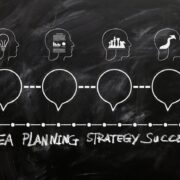Leadership is a crucial aspect of both career success and personal development. It is the ability to inspire and motivate people towards a common goal, and to lead by example. Good leadership skills are essential in any field, whether it is business, politics, education, or sports. The art of leadership is the ability to use these skills and use them to achieve success in both your career and personal life.
Leadership skills develop through a combination of training, practice, and personal experience. It is not something that you get overnight. It is a process that requires ongoing commitment and effort. The following are some key skills that are essential for effective leadership:
Leadership and communication
Effective communication is essential for good leadership. A leader must be clear in conveying their vision, goals, and expectations to their team. They must also be able to use active listening techniques to give feedback. Also to address concerns, and to get suggestions from their team. Effective communication is also about being able to adapt your style to different audiences and situations.
Empathy is a good leadership skill
Empathy is the ability to understand and relate to the emotions and feelings of others. A leader who demonstrates empathy is more likely to build trust, create a positive work environment, and motivate their team. Empathy also helps leaders to see things from different perspectives and make better decisions.
Leadership means decisiveness
Leaders must be able to make tough decisions quickly and with confidence. They must also be willing to take responsibility for their decisions and their consequences. Decisiveness is about being able to assess the pros and cons, consider options, and make a choice. The choice could be bad or good for the team and the organization.
Creativity
Leaders must be able to think outside the box and come up with innovative solutions to problems. They must be able to inspire their team to think creatively and take risks. Creativity is about exploring new possibilities.
Leadership means accountability
Leaders must be accountable for their actions and decisions. They must be willing to take ownership of mistakes and take steps to rectify them. Accountability is about being transparent, honest, and responsible.
Leaders Delegate
Leaders must be able to delegate tasks effectively. They must identify the strengths and weaknesses of their team members and assign tasks accordingly. Delegation is about empowering your team and giving them the opportunity to develop new skills and grow. Leaders must also remember not to micromanage their team and to trust them to carry out task as given.
Adaptability
Leaders must be able to adapt to changing circumstances and be flexible in their approach. They must be able to respond quickly to new challenges and opportunities. Adaptability is about being agile and able to adjust your strategy based on new information.
Developing leadership skills takes time and effort. It requires a willingness to learn, to take risks, and to be open to feedback. The following are some tips for developing your leadership skills:
Seek feedback
Ask for feedback from your team, your manager, or a mentor. Be open to constructive criticism and use it to improve your skills. Seek out opportunities for feedback and use it to develop your leadership abilities.
Learn from others
Observe other leaders and learn from their successes and failures. Read books, attend seminars, or watch videos on leadership. Look for mentors who can guide you and offer advice.
Practice self-reflection
Take time to reflect on your leadership style, your strengths, and your weaknesses. Be honest with yourself and identify areas for improvement. Use this reflection to set goals and develop a plan for personal growth.
Take risks
Leadership requires taking risks and stepping outside your comfort zone. Be willing to try new things and take on new challenges. Take calculated risks and learn from both successes and failures.
Lead by example
Be a role model for your team. Lead by example and portray the behaviors and values you expect from your team. Show your team what it means to be accountable, creative, and adaptable. Your actions speak louder than words, and your team will be more likely to follow your lead if you practice what you preach.
In conclusion, leadership is a vital skill for success in both personal and professional life. Effective leadership involves a combination of communication, empathy, decisiveness, creativity, accountability, delegation, and adaptability. These skills can develop through training, practice, and personal experience. Leaders seek feedback, learn from others, practice self-reflection, taking risks, and lead by example. You can build your leadership skills and become a more effective leader. With good leadership, you can inspire your team, achieve your goals, and make a positive impact in your organization and community.
If you would like to learn about other invaluable and intangible skills to improve your life check out our post on becoming resilient. See you next post.














Comments